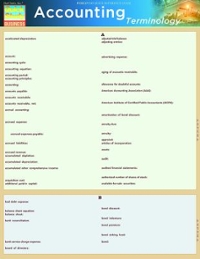Question
Option #2: Applying Activity-Based Costing Swiss Chocolates U.S. division will be diversifying its product line to include two product offerings, a basic plain milk-chocolate candy
Option #2: Applying Activity-Based Costing
Swiss Chocolates U.S. division will be diversifying its product line to include two product offerings, a basic plain milk-chocolate candy bar, and a fruit-infused high cacao content premium candy bar. The candy bars are processed through a molding operation in which molten chocolate is injected into a mold and cooled to room temperature, removed from the mold, and packaged for storage and bulk palletized shipment.
Below is information regarding the direct costs and volumes of the two major products:
| Variable cost and volume data | Milk chocolate | Premium cacao |
| Raw materials | $0.50 | $0.75 |
| Direct labor | $0.25 | $0.40 |
| Selling and general | $0.05 | $0.05 |
| Volume in units | 300,000 | 100,000 |
Sales prices of the two products are $2.65 for milk chocolate and $4.99 for premium cacao. The number of hours required to manufacture each unit was the same for both products.
After an interview process with the factory and production personnel, the division controller, Steve Smith, completed the following table. From its simple cost structure, the company decided to reconsider its overhead pool and reallocate on the basis of activity-based costing. Its simple overhead pool has been reclassified according to the ABC hierarchy within the following table:
| ABC Cost Pools | Indirect manufacturing labor | Factory Insurance & Utilities | Depreciation -- Machinery and factory | Repairs and maintenance -- factory | Selling, marketing and distrubution expenses | General & administrative expenses |
| Product Development | $ 25,000 | |||||
| Setup Candy Molding Equipment | $ 12,000 | $ 18,500 | ||||
| Equipment Operations | $ 15,500 | $ 31,500 | $ 20,000 | $ 10,000 | ||
| Shipment Preparation | $ 20,000 | |||||
| Distribution | $ 4,000 | |||||
| Administration | $ 20,000 | $ 60,000 | ||||
| Totals | $ 52,500 | $ 31,500 | $ 38,500 | $ 14,000 | $ 40,000 | $ 60,000 |
Smith also noted the following percentage allocations of cost for the activities which are required to manufacture each product.
| ABC cost allocation percentages | Milk chocolate | Premium cacao |
| Product development | 20% | 80% |
| Setup candy molding equipment | 60% | 40% |
| Equipment operations | 75% | 25% |
| Shipment preparation | 70% | 30% |
| Distribution | 65% | 35% |
| Administration | 50% | 50% |
From the cost information provided, respond to the following questions:
- Compute the cost of each product under the simple/traditional costing method. For period costs, use the same basis of allocation as factory overhead.
- Compute the net operating profit margin of each product using the simple/traditional costing method.
- Categorize the production activities under activity-based costing according to the cost hierarchy. Indicate the type of cost category that aligns with the activity.
- Compute the total overhead and period cost allocation under ABC assumptions for each product.
- Compute the per unit ABC cost of each product.
- Compute the net profit margin of each product using the ABC costing method.
- Compare the net profit margin of the products under the simple/traditional cost assignment and the ABC assignment for each product. Evaluate the difference.
- Write a brief explanation (approximately two paragraphs) that Smith might deliver to management to justify the use of ABC for these two products.
Step by Step Solution
There are 3 Steps involved in it
Step: 1

Get Instant Access to Expert-Tailored Solutions
See step-by-step solutions with expert insights and AI powered tools for academic success
Step: 2

Step: 3

Ace Your Homework with AI
Get the answers you need in no time with our AI-driven, step-by-step assistance
Get Started


